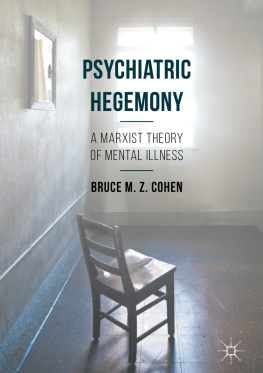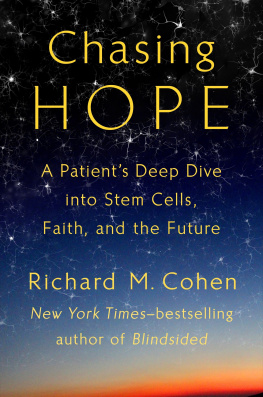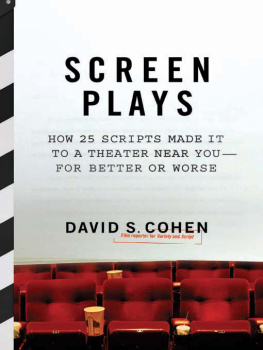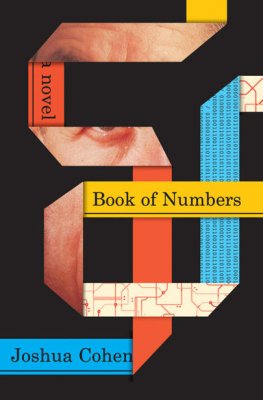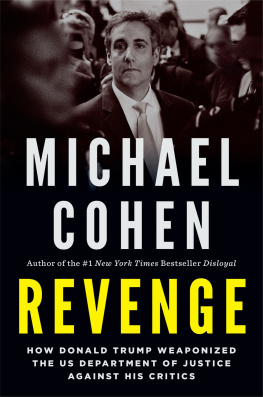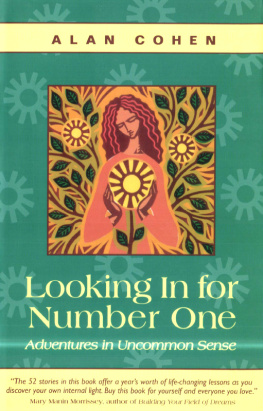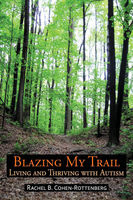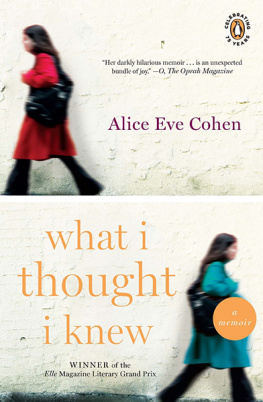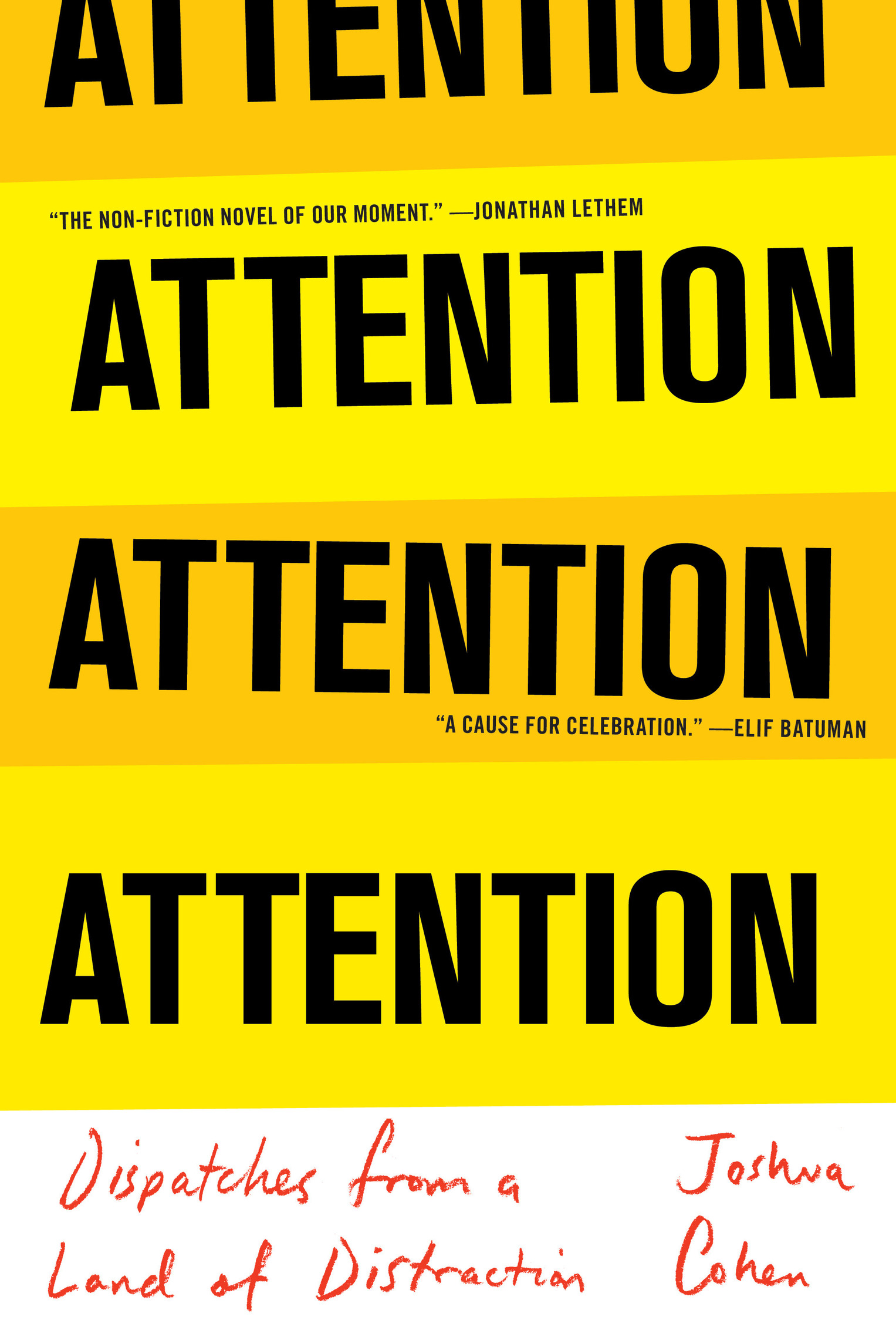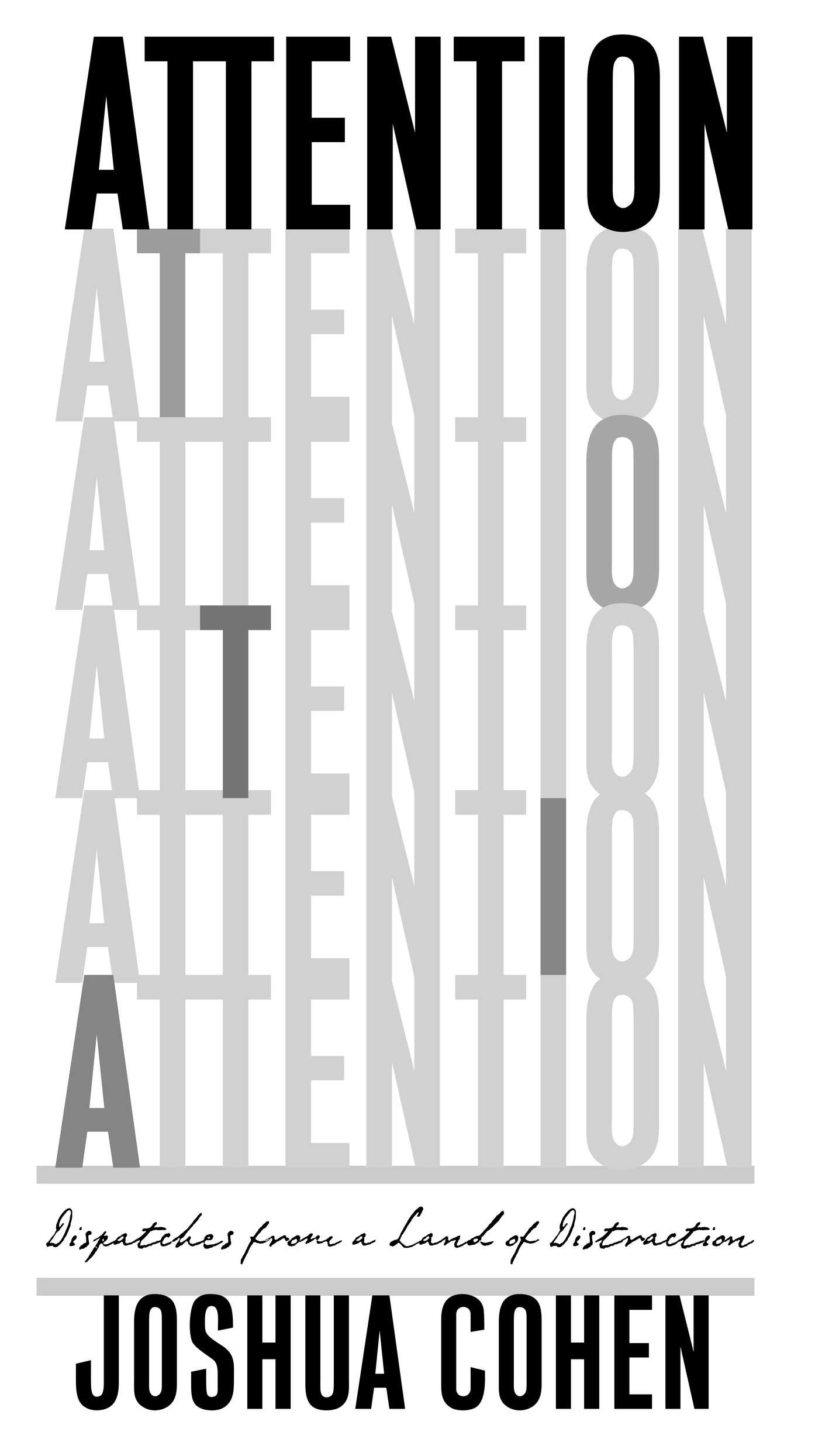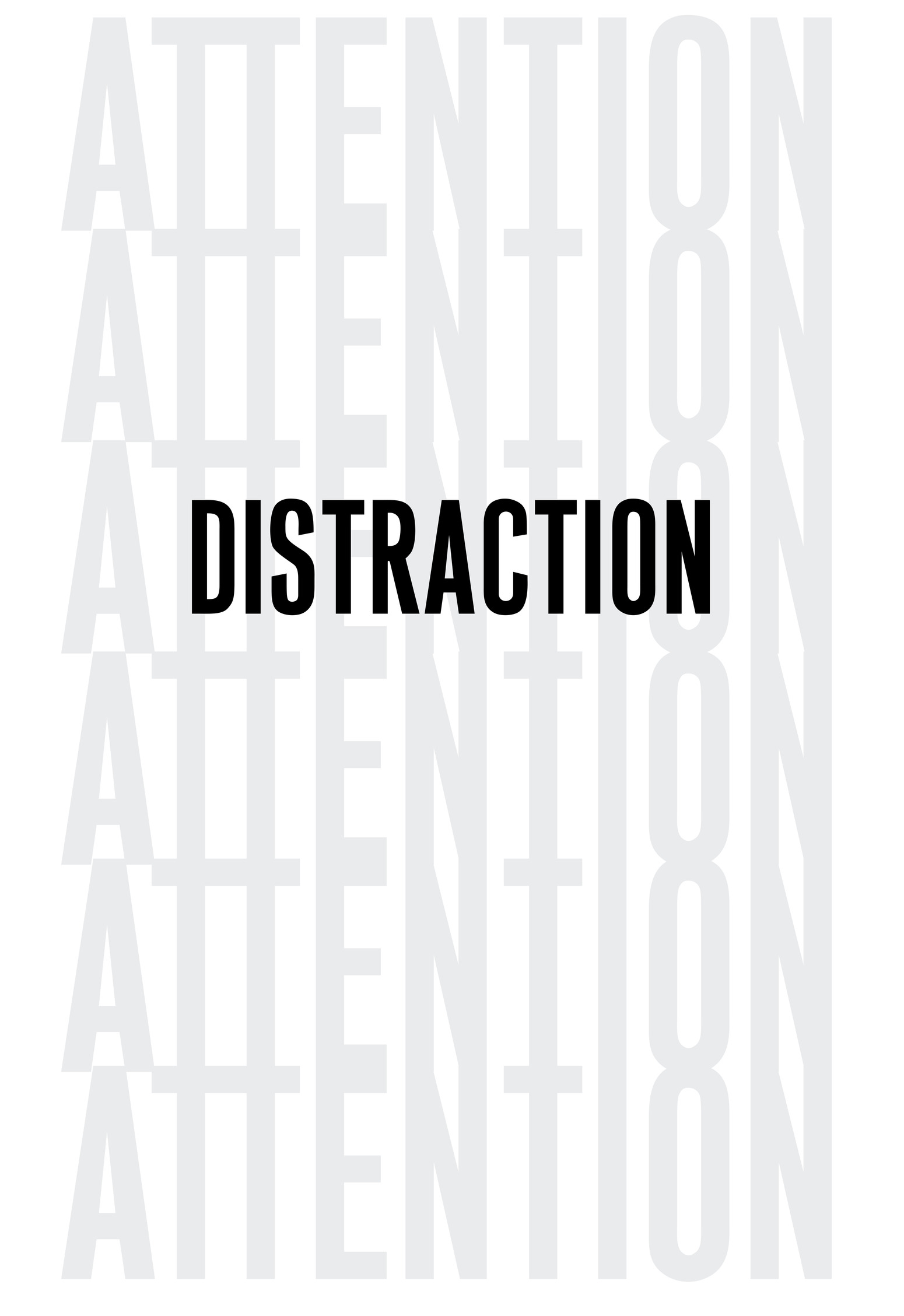Copyright 2018 by Joshua Cohen
All rights reserved.
Published in the United States by Random House, an imprint and division of Penguin Random House LLC, New York.
R ANDOM H OUSE and the H OUSE colophon are registered trademarks of Penguin Random House LLC.
Some of the essays that appear in this work were originally published, often in substantially different form, in Art in America, Assignment, Bookforum, The Cupboard, Die Welt, The Fabulist, The Forward, Frankfurter Allgemeine Zeitung, Harpers Magazine, London Review of Books, N+1, The New Haven Review, The New Republic, New York, The New York Times Book Review, Paper #04, The Paris Review, The Point, PowellsBooks.Blog, The Sewanee Review, Tablet, Tin House, and Triple Canopy. In addition, Fencing for Hitler (on Helene Mayer) was originally published in Jewish Jocks: An Unorthodox Hall of Fame edited by Franklin Foer and Marc Tracy (New York: Twelve, 2012); Pond Memories (on Georges Perec) was originally published as the introduction to W, or the Memory of Childhood by Georges Perec (Boston, Mass.: David R. Godine, Publisher, 2018); In Partial Disgrace (on Charles Newman) was originally published as the introduction to In Partial Disgrace by Charles Newman (McLean, Ill.: Dalkey Archive Press, 2013). ATTENTION: A (Short) History is from Attention!: A (Short) History by Joshua Cohen (London: Notting Hill Editions, 2013).
L IBRARY OF C ONGRESS C ATALOGING-IN- P UBLICATION D ATA
N AMES: Cohen, Joshua. T ITLE: Attention : dispatches from a land of distraction / Joshua Cohen. D ESCRIPTION: First edition. | New York : Random House, 2018. | Includes bibliographical references. I DENTIFIERS: LCCN 2018000837 | ISBN 9780399590214 | ISBN 9780399590221 (ebook) C LASSIFICATION: LCC AC8.5 C64 2018 | DDC 080dc23 LC record available at lccn.loc.gov/2018000837
Ebook ISBN9780399590221
randomhousebooks.com
Book design by Barbara M. Bachman, adapted for ebook
Cover design: Oliver Munday
v5.3.2
ep
Contents
From the Diaries: New York Signs: Last Exit for the
Verrazano-Narrows Bridge; Yield; Siamese Connection;
LIRR; R Trains Run Express; Stop
From the Diaries: Hat Lessons Gleaned from Attending
a Film Noir Marathon with a Nonagenarian Ex-Milliner
Who Never Stops Talking
From the Diaries: Four Facts I Learned in a Bar on Staten Island;
A Successful Man in Chicago Is Complimented on His Suit
From the Diaries: Salt and Pepper Shakers; When We
Stopped Saying We Were Going to Move Out of the City
From the Diaries: Conversation Summary (Next Table);
Why Ive Never Had Sex in Hungary
From the Diaries: What Kind of Neighborhood Is Palilula (Belgrade)?;
The Hague
Every one knows what attention is.
W ILLIAM J AMES,
The Principles of Psychology,
V OLUME 1, C HAPTER XI
I F ANYTHING DISTINGUISHES MY GENERATION of American writers, its that everyone in my generation became a writer, simply through the act of going online. More words have been written, more words have been read, by my generation than by any other generation in human history. I have to say, as a person whod always planned on becoming a novelist, as a person whod always planned on supporting the writing of novels through the writing of nonfiction, I found this daunting. The amount of information and the speed of its dissemination overwhelmed. Im guessing this was the experience of most Americans born within reach of a midsized untangled extension cord from the year 1980most Americans whod grown up with books, only to exchange them for millennial adulthood and screens.
This ever-increasing amount of information coming at us at this ever-increasing speed rendered us unable to adequately attend to our own divided presences, let alone to a world that, though it wasnt united, was suddenly global. Terrorism in Istanbul, hostages in Afghanistan, shark attacks, lethal mold, a sex scandal involving a missing congressional intern, the Giants v. the Broncos (to mention just a few of the headlines of 9/10/2001)we were utterly incapable of absorbing what was happening. Rather, we were only capable of reacting to it: We scrolled through the plenitude, and clicked like, and clicked dislike, and generally ignored anything we werent able to assimilate efficiently. The dangers of our impatience were obvious: no depth. But considerably less obvious were the dangers involved with a mass cultures rupture into myriad subcultures. Today, our sense of selfhood is undergoing a similar fragmentation. Were all becoming too disparate, too dissociatedsearching for porn one moment, searching for genocide the nextleaving behind stray data that cohere only in the mnemotech of our surveillance.
I BEGAN WRITING NONFICTION in the wake of 9/11and was published in print, in hard copy, by newspapers and magazines that would go on to cut pages, wages, and staff, if they didnt fold altogether. Meanwhile, online was busy revising responsibility for the attacks: Bush II ordered them, Cheney let them happen, the American Deep State colluded with the Israelis, the Israelis colluded with the Saudis. I remember enduring explanations about how it was absolutely unthinkable that an explosion of jet fuel would be able to melt that grade and tonnage of steel so quickly and completely as to cause complete collapse. Ergo, the destruction of the WTC had to be a controlled demolition. Ergo, the destruction of the WTC had to be an inside job. Here, at the start of my nonfiction career, was the first time I encountered this phenomenonnamely, the violence being done to facticity.
In the years since, the ways in which fact has been under attack have been well documented, in the very venues in which fact has been under attack. Newspapers, magazinesby which I mean, of course, their online successorsare full of much more than information thats true and information thats false. Theyre also full of true accounts of the dissemination of true information, true accounts of the dissemination of false information, false accounts of the dissemination of true information, and, last but not least, my mind-melting favorite, false accounts of the dissemination of false information. The identity, or identities, of the disseminator, or disseminators, of this information changes frequently. The notions of the degree of culpability to be borne by the organizations that merely disseminate the information that has been leaked, or hacked, or faked, or some combination of leaked and faked, or hacked and faked, changes frequently too. But digital technology is not at fault. Rather, to blame digital technology is to blame ourselves. The average computer user of good faith who seeks regularly to read the news online now has to exercise the type of critical acumen that scholars of literature have always reserved for the analysis of texts: an intense engagement that seeks out secret meanings, hidden biases, hidden agendas. And whats more, our fictional average computer user of good faith who seeks regularly to read the news online has to do so even as the news reads him, or her, and modifies itself accordingly.



